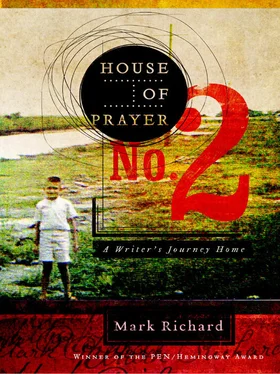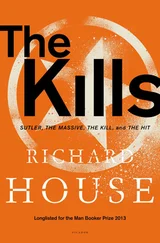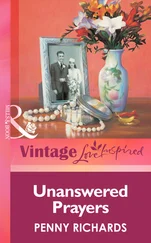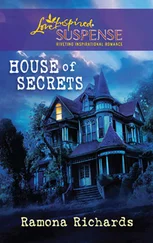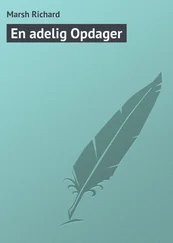The father’s mother is a big woman from Sumrall, Mississippi, who was used to more than her husband has provided over the years. He was away a lot on Huey Long’s Special Police force and then later on the railroads, and when he comes home, he goes away on the weekends hunting and fishing with his best friend, Dr. Goldsmith, a Jew. The father’s mother did not like Huey Long, and she doesn’t like Jews. She had a pet Negro growing up named Scrap. When Big Bill takes their laundry into the black part of town, Big Bill often stays all morning, listening and talking and eating fried-oyster po’boy sandwiches. Now that Big Bill has retired and come home for good, he mostly stays in his shop in the garage putting people’s broken clocks together. The big clock at the nearby convent is always stopping, and when he goes over there to fix it, the nuns feed him lunch and make him stay all day.
On a side trip to New Orleans the women go shopping with the father along to watch their bags and Big Bill takes the special child to Jackson Square to feed the pigeons. It is hot, and Big Bill takes the child to some bars off Bourbon Street to get out of the sun and to meet some friends of his from the old days. In the bars are friendly people with parrots on their shoulders, big laughing bartenders in white shirts and black bow ties who give Big Bill his two shot glasses and the child ginger ale colored with maraschino cherry juice. Big Bill lets the child sit on his lap on his bar stool while they watch the street go past the open barroom doors.
Up on a glass shelf in one of the bars they go into, the child sees a windup toy lit from underneath with green and red lights. The bartender takes it down and winds it up and sets it on the bar. A little monkey in a fez plays the drums, nodding his head and kicking his feet. It is like Moe throwing luggage, like Misty swimming in Chincoteague; as long as that monkey keeps playing the drums and nodding his head and kicking his feet, time stands still for the special child. Wind it up again, wind it up. Can we wind it up again, please, sir?
Come on, Snort , Big Bill calls his grandson, and Big Bill takes them out of the bar and onto a streetcar out to Audubon Park. A lady in her bathrobe on the streetcar has a plastic flower in her hair and carries a long piece of wrought iron tipped like a spear. It looks like a piece of something she has pulled out of someone’s fence. She asks Big Bill for a dime, and he gives her a dollar. Where you going? she asks. I’m taking my grandson to the zoo. Well, say hello to my uncle, says the lady. He works at the zoo? says Big Bill. They got him locked up in the monkey house, says the lady, ’cause he’s a monkey’s uncle . Well, we’ll say hello, says Big Bill, we’re on our way to the monkey house. My boy here seems to like monkeys.
It’s incredible, the monkey house. A big castle surrounded by a moat with millions of monkeys playing with themselves like humans and shouting at the tourists and sometimes flinging a handful of poo-poo at the people leaning over the rail.
I want to stay here all day, says the special child. Okay, says Big Bill, we will, and they stay until it is time for them to go.
On their way out, the special child sees a man walking around the monkey house. The man is picking up trash with a nail on the end of a stick. He carries a big burlap sack slung over his shoulder for the stuff he finds. He doesn’t even have to bend over to pick it up, because he has the nail on the end of the stick.
Is that that man’s job? the special child asks Big Bill.
Yes , says Big Bill, that’s what he does .
He gets to walk around the monkey house all day with a nail on the end of the stick finding stuff? asks the child.
Yes , says Big Bill.
In the storeroom off the back gallery of Big Bill’s house the child finds lots of treasures. There are National Geographic s from the very first year. The child mostly likes the castle, ship, and monkey issues. He finds his father’s helmet from when his father was in the Army. There is one thing he finds that he likes a lot better than the National Geographic s, a box of old photographs of blown-apart people and horses lying dead in snow.
When Big Bill was a young man, he was enlisted from deep within the bayous to fight the Germans in the Great War. Some officers took Big Bill into French towns with them because he spoke a kind of French, and because Big Bill got along well with the French people they met. The French people liked Big Bill and made allowances for the coarser Americans, his Army superiors. As a gift, an officer had given Big Bill a simple box camera. With the simple box camera, Big Bill took photographs of his friends struggling and dying with their horse-drawn artillery in the heavy snows of the Argonne forest. The only happy photograph was taken by a stranger on the returning troopship—a very thin Big Bill and two other soldiers, all who were left of the cannonade they had been.
When the special child pulls the box of photographs out and asks about it, they take it away from him, and on his later visits the box is gone.
Here is something you can play with , the grandmother tells the special child. She sets an old Royal typewriter on the dining room table. Write me a letter, write me a story . The child tries to type the story of Misty of Chincoteague in several sentences. It takes most of the afternoon.
When it is time to go back to Virginia, they spend one last night at the mother’s old house, and she cries and begs to stay. Here, take some food I am making for you for the trip, the mother’s mother says, ignoring her crying. The mother’s mother cooks spicy food and fries up some bread, and this makes the father angry because he hates when his clothes smell like fried bread. The child is afraid he will have to return to Virginia with his father by himself.
They have a big going-away barbeque for the mother, and her brothers tie her up in the backyard and wash her hair for her with the hose until she says uncle. Everybody laughs except the father, who watches from the garage where the stock car and tools are, sipping beer. When the child tries to save his mother, one of his uncles sets him on top of the garage roof and later makes him ride a pony.
Sometimes on the drive back to Virginia, because the company grey sedan with the two-way radio looks like an unmarked police car, the father drives up behind people he thinks are driving too fast and flashes his lights and makes them pull over, then he speeds off. He stops doing this when in Georgia he accidentally pulls over an unmarked police car and the state trooper is very angry at the father. Later on in North Carolina, the father seethes and speeds faster.
It has been so hot while they have been away in Louisiana that the candles the mother had stuck in the Chianti bottles are drooped over on the mantel.
There is a lot of mail. There is a letter from the invention company where the father has sent them an invention. It is for a device that hooks onto a kite string that sends paper airplanes up to the kite and then releases the airplanes so they can float to the ground. The father had gotten the idea watching the special child trying to slingshot his Japanese parachutists as high as he can in the backyard. The father tried to explain the idea to his brothers-in-law in Louisiana, and they were polite about it, but you could tell they didn’t understand why anyone would want an invention like that. Right on the spot, the brothers-in-law took some pipes and welded together a cannon that shot old golf balls about a hundred yards. You can take it back to Virginia with you, they told the child when they were leaving, giving him the cannon, and they said good luck to the father about his invention, even if they didn’t understand it. When the family got home from Louisiana, the invention company didn’t understand the invention and they didn’t want it, either.
Читать дальше
